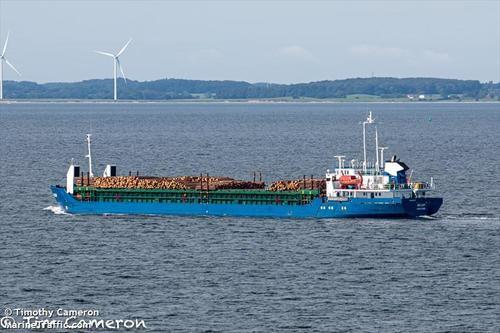ÐÎÑÑÈÉÑÊÈÉ ÏÐÎÔÅÑÑÈÎÍÀËÜÍÛÉ ÑÎÞÇ ÌÎÐßÊÎÂ
SEAFARERS' UNION OF RUSSIA
A NON-UNIONIZED SEAFARER
IS AN UNPROTECTED SEAFARER
Back
Unreliable shipowner

The crew of the m/v Liga (IMO 8406779, flag of Cameroon, 1985-built) appeals to the International Transport Workers Federation for the second time this year as they have faced the problems with payment of wages again. The crew consisted of 7 Russian seafarers - from Rostov-on-Don, Astrakhan, Kaliningrad and Krasnodar and a the Chief Engineer from Syria - have not received the money owed them since June, moreover, the company refused to pay them 50% bonus for work in Africa. The total amount of debt has reached to more than USD140,000. To make the things even worse the working conditions on board are near unbearable: they ran out of drinking water on board, they food stores are down to 5-7 days. In addition, as air conditioners are in disrepair, the temperature not only outside, but also in the cabins at times reaches +50C - at the moment the ship is in Senegal.
According to Olga Ananina, the ITF Inspector in Novorossiysk, the last appeal from the crew came at the end of May, when the vessel was in the Guinea region. At that time, the seafarers were not paid wages for more than two months, and in early June they even refused to carry out unloading. In addition, two crew members contracted malaria and it took a lot of effort to get the company Tarron Operating Ltd, based in Klaipeda (Lithuania), to arrange hospitalization and medical treatment for them.
The shipowner repeatedly refused to pay the crew wages, citing difficulties in money transfers, sanctions, lack of cash, so the ITF Inspector had to put Liga on the list of abandoned shipst - according to the provisions of the Maritime Labor Convention (MLC) the crew can be considered abandoned if they wages are not paid for a period of at least two months. After that all the difficulties that the company referred to disappeared almost immediately: the crew was paid off debts owed them for the period from March to May, and the sick crew members were repatriated. In total, six people signed off the vessel with payment in full.
However, already in early November the crew - some of the seafarers who remained on board and several new crew members - again asked for assistance in relation with non-payment of salaries since June and a number of other problems on board. In addition to food shortages and unbearable temperatures the seafarers complain that there are fleas and bedbugs on the ship, because of which they get sick. The ITF Inspector notes that as the shipowner does not respond to letters, and the flag of Cameroon has long been on the Black List of the Paris Memorandum, the ship will again be listed as abandoned.
It should be noted that the crew's contracts of employment concluded with Tarron Operating were signed by its director Karchemov Sergey Evgenievich. The company has in its management two more vessels. One of them, m/v Lahta (IMO 8420086, flag of Cameroon, 1985-built), was detained in August this year in Brunsbüttel (Germany) for 22 days. Port State Control Inspectors found out 43 deficiencies on board the vessel including 2 related to the MLC among which was non-payment of wages. The company has in its management one more vessel - "Litsa" (IMO 8906286, flag of Cameroon, 1990-built).
It should be noted that the same Sergey Karchemov also signed the employment contracts with the seafarers who worked on board the m/v "Alexander Tvardovsky" (IMO 9057290, flag of Russia, 1996-built) owned by LLC KRONCARGO. In August, these seafarers turned to the ITF and the Seafarers' Union of Russia for help due to the fact that they had not been paid their salaries for several months. There were problems with food supplies on board their vessel either.
The Seafarers' Union of Russia urges not to consider m/v/ "Liga" and other Tarron Operating ships for employment: continuous problems with wages payment and working conditions, which the shipowner begins to address only after the intervention of the union or State port control clearly signal the unreliability of the company. Otherwise, seafarers risk being abandoned.
Up
